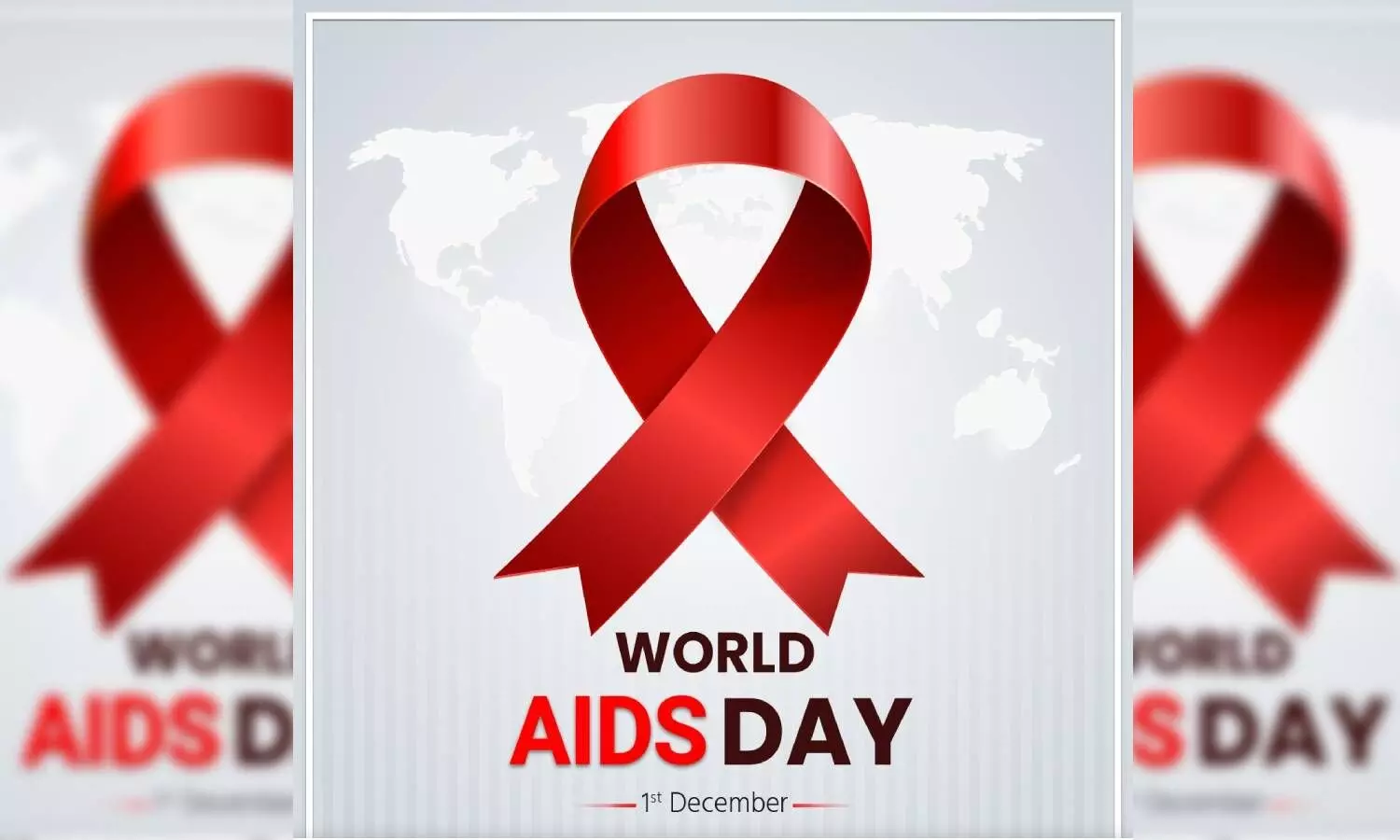World AIDS Day: Andhra ranks first in HIV deaths, Telangana fourth
Of the total 58,960 deaths in India, Andhra Pradesh topped the list with 11,430 fatalities. Telangana recorded 4,080 deaths, which is the fourth-highest in the country.
By Newsmeter Network
Hyderabad: Andhra Pradesh has recorded the highest number of HIV deaths in 2019, while Telangana stands at the fourth position.
Of the total 58,960 deaths in India, Andhra Pradesh topped the list with 11,430 fatalities. Telangana recorded 4,080 deaths, which is the fourth-highest in the country.
Around 2,820 new cases of HIV were reported in Telangana in 2019. This is much less compared to the total new infections in the country. The infections in the country stand at 69, 220.
As per `India HIV Estimation Report 2019', of the 23.48 lakh people living with HIV in India, 1.58 lakh are from Telangana. It accounts for 7% of the total infected population. Around 0.49% of the adult population (15-49) in Telangana is infected with HIV/AIDS.
This year the theme of `World AIDS Day' is 'End inequalities. End AIDS and End Pandemics', with a special focus on reaching people left behind.
WHO said that the main agenda this year is to highlight the growing inequalities in access to essential HIV services around the world. It said the division, disparity, and disregard for human rights are among the failures that allowed HIV to become and remain a global health crisis.
WHO said COVID-19 is exacerbating inequities and disruptions to services, making the lives of many people living with HIV more challenging.
Awareness of HIV/AIDS
According to NFHS-5, 93% of women in Telangana have heard of HIV or AIDS. In urban areas, 97% of women know about HIV or AIDS, compared to 91% in rural areas. Women aged 25-29 are more likely (96%) to have heard about HIV or AIDS than older women aged 40-49 (90%).
Women with no schooling (85%), women with no regular exposure to media (87%), and scheduled tribe (88%) are less likely than other women to have heard of HIV or AIDS.
Men are more likely than women to know about HIV or AIDS. 94% of men in Telangana have heard of HIV or AIDS, including 97% in urban areas.
Do people know how to prevent HIV/AIDS?
Men are much more likely than women to know how HIV/AIDS is transmitted and how to keep from getting it. Only 69% of women know that consistent condom use can help to prevent HIV/AIDS compared with 75% of men. But 77% of women know that having just one infected partner who has no other partners can reduce the chance of getting HIV/AIDS compared with 76% of men.
Less than one-third (31% each) of women and men have comprehensive knowledge about HIV/AIDS. This means that they know that consistent use of condoms every time they have sex and having just one uninfected sex partner who has no other partners can reduce the chance of getting HIV/AIDS, they know that a healthy-looking person can have HIV/AIDS and they reject two misconceptions about the transmission or prevention of HIV/AIDS.
Stigma related to HIV
62% of women and 65% of men in Telangana would be willing to take care of a relative with HIV/AIDS in their home. A similar proportion of women (73%) and men (81%) say that a female teacher infected with HIV/AIDS but is not sick should be allowed to continue teaching. 59% of women and 70% of men say that they would buy fresh vegetables from a shopkeeper with HIV/AIDS. 34% of women and 29% of men say that if a family member got infected with HIV/AIDS, they would not want to keep it a secret.
Men (78%) are more likely than women (69%) to say that an HIV-positive student should be allowed to attend school with students who are HIV-negative. Nearly three-fifths of women (56%) and two-thirds of men (67%) think that people living with HIV/AIDS should be treated in the same hospital as persons who are HIV negative. Almost four-fifths (79%) of men and nearly three-quarters of women (73%) think that people living with HIV should be allowed to work in the same office with people who are HIV negative.
HIV testing prior to NFHS 5
Only 38% of women and 13% of men aged 15-49 had ever been tested for HIV prior to NFHS-5. Men in urban areas are somewhat more likely to have ever been tested for HIV prior to NFHS-5 than rural women and men.
55% of women who had a live birth in the past five years and received ANC during pregnancy were tested for HIV during ANC. Urban women (52%) are slightly less likely than rural women to have been tested for HIV during ANC.
The Union Health Ministry along with Niti Aayog on November 24 released the findings as part of NFHS 5 (2019-21). NFHS - 5 fieldwork for Telangana was conducted in 31 districts of the state from June 30, 2019, to November 14, 2019. Information was collected from 27,351 households, 27,518 women aged 15-49, and 3,863- men in the age group of 15-54.